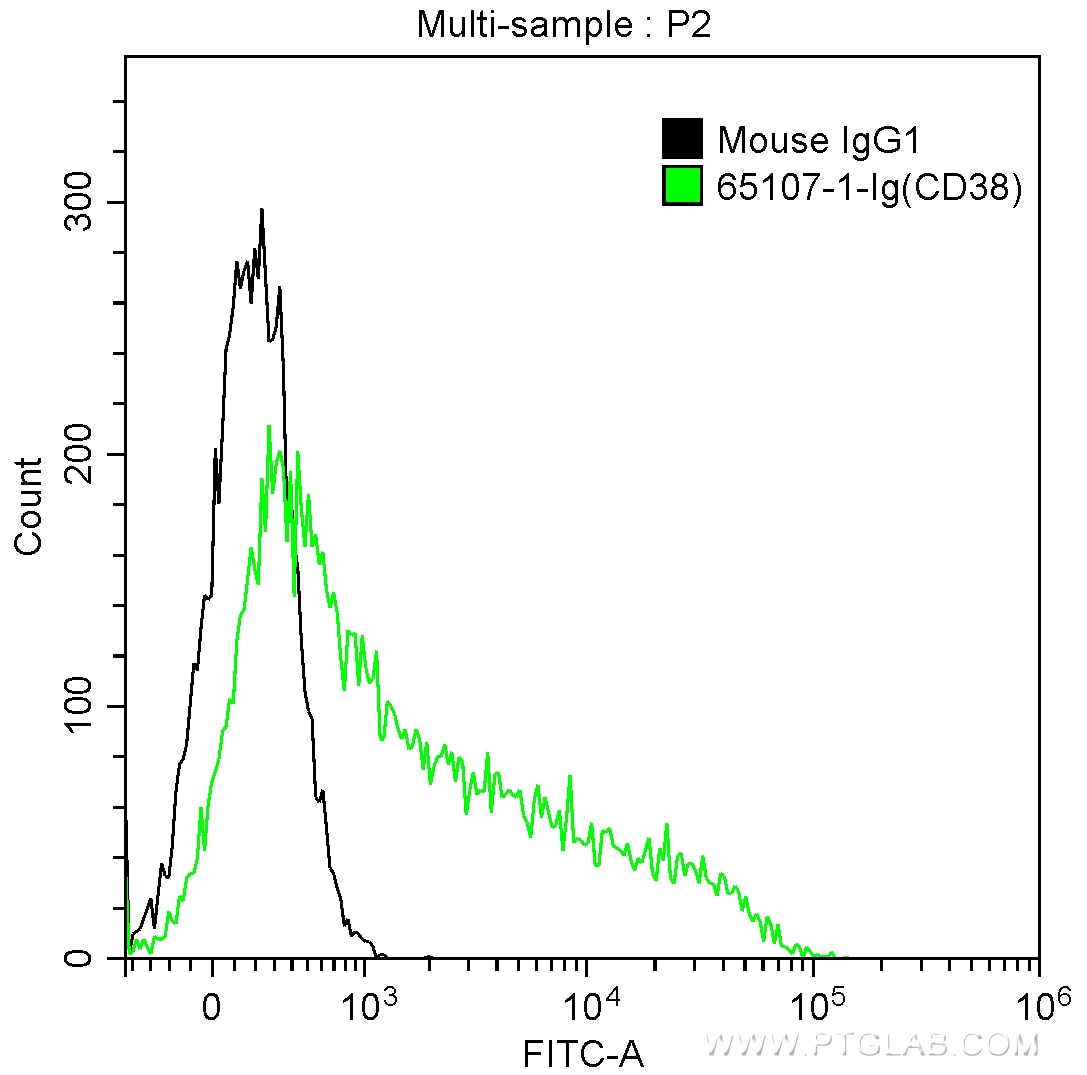Tested Applications
| Positive FC detected in | human peripheral blood lymphocytes |
Recommended dilution
| Application | Dilution |
|---|---|
| Flow Cytometry (FC) | FC : 0.5 ug per 10^6 cells in 100 μl suspension |
| This reagent has been tested for flow cytometric analysis. It is recommended that this reagent should be titrated in each testing system to obtain optimal results. | |
| Sample-dependent, Check data in validation data gallery. | |
Product Information
65107-1-Ig targets CD38 in FC applications and shows reactivity with human samples.
| Tested Reactivity | human |
| Host / Isotype | Mouse / IgG1, kappa |
| Class | Monoclonal |
| Type | Antibody |
| Immunogen |
Human BJAB B cell line Predict reactive species |
| Full Name | CD38 molecule |
| Calculated Molecular Weight | 300 aa, 34 kDa |
| GenBank Accession Number | BC007964 |
| Gene Symbol | CD38 |
| Gene ID (NCBI) | 952 |
| ENSEMBL Gene ID | ENSG00000004468 |
| RRID | AB_2918406 |
| Conjugate | Unconjugated |
| Form | Liquid |
| Purification Method | Affinity purification |
| UNIPROT ID | P28907 |
| Storage Buffer | PBS with 0.09% sodium azide, pH 7.3. |
| Storage Conditions | Store at 2-8°C. Stable for one year after shipment. |
Background Information
CD38, also known as ADP-ribosyl cyclase 1, is a type II transmembrane glycoprotein with a short N-terminal cytoplasmic tail, a single membrane-spanning domain, and a C-terminal extracellular region with four N-glycosylation sites (PMID: 2319135). The extracellular domain of CD38 has bifunctional enzyme activities that catalyze synthesis of cyclic ADP ribose from nicotinamide adenine dinucleotide (NAD) and hydrolysis of cyclic ADP ribose to adenosine diphosphoribose (PMID: 10636863). CD38 is expressed on a variety of hematopoietic and non-hematopoietic cells and is involved in diverse processes such as generation of calcium-mobilizing metabolites, cell activation, and chemotaxis (PMID: 25938500).
Protocols
| Product Specific Protocols | |
|---|---|
| FC protocol for CD38 antibody 65107-1-Ig | Download protocol |
| Standard Protocols | |
|---|---|
| Click here to view our Standard Protocols |




